Heading off the Achievement Gap | CBT Power Lunch
March 4, 2011
Belcher promotes tax levy to fund universal preschool
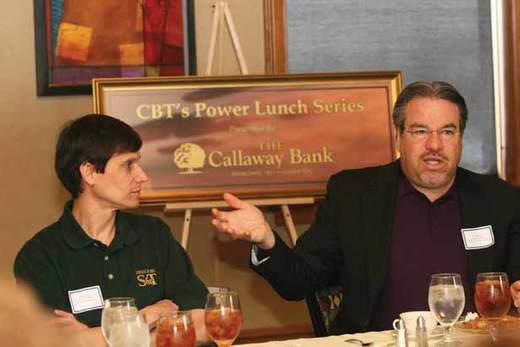
The Columbia Public Schools superintendent has a plan, a process and a solution. It would even save taxpayers money in the long run.
His plan was presented at a Columbia Business Times Power Lunch held on Feb. 25 in the Tiger Hotel: Provide quality preschool for all children in Boone County. The program would be run by an independent board and funded by revenue from a dedicated property tax levy, similar to the 4.75-cent levy used for road projects in Boone County.
Naturally, there are obstacles. The General Assembly would have to amend a law to allow a county to propose such a tax levy. The Boone County Commission would have to agree to put the proposal on the ballot. And the majority of voters would have to back the plan.

Jack Jenson, the director of an early education program called First Chance for Children, added, “Study after study has shown that if you spend the money early and prevent the gap, it’s going to save money down the road.”
When a household’s annual income is less than $24,000, parents simply can’t afford to send their children to quality preschools, which typically cost about $6,000 per child annually, Belcher said.
But why do Belcher and fellow advocates who attended the lunch forum want to tackle an issue that might get little support in a tough economy?
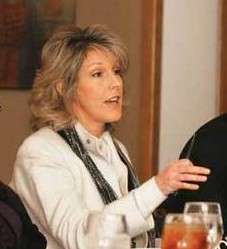
“We’re urbanizing rapidly, and we’re not prepared for it,” Belcher said. Students from disadvantaged homes end up fueling the “achievement gap,” that space between the majority population test scores and those of lower-achieving students.
“Lower-income families are having more children than middle- and upper-income families,” Belcher said. “We’re seeing a growth of that population. If we don’t do something for them, it’s simply going to change the structure and fabric of the community over time. We need to give them a place where they become an individual who supports society instead of an individual who depends on society. If we don’t intervene, we’re not going to be able to close that gap.”
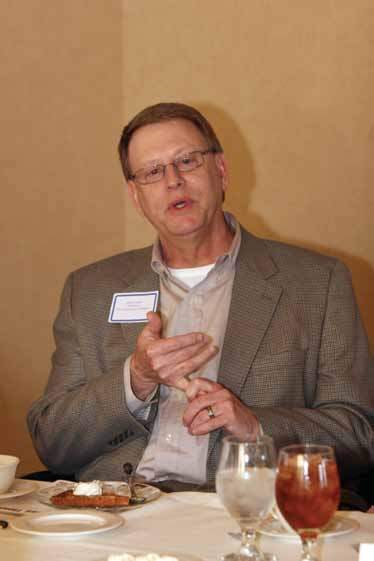
“This is not a tax issue; this is not a money issue,” Belcher said. It’s about being willing to provide sustainable, quality preschool education to prevent what he called the “preparation gap,” which leads to the later achievement gap.
Melissa Randol of the Missouri School Boards Association indicated she’s found a legislator willing to sponsor such a change in the law.
Yet, several participants remained unconvinced of the plan’s merit, including Boone County Presiding Commissioner Ed Robb.
Robb pointed out that the Commission has also received requests for tax increases to fund an enhanced emergency communications system and improvements in mental health services.
“It’s the unanimous decision on the part of the commission not to support this issue because of all of the other ones that we have,” Robb said. (He later explained that there was no vote, just a discussion and a verbal consensus.)
Robb suggested that the Board of Education reallocate resources and spend more on early childhood education. He also questioned the “rate of return it purports to have. I don’t believe any of these numbers.”
When Belcher discussed a previously rejected idea of increasing the state sales tax on cigarettes to fund an expansion of preschool opportunities, Robb pointed out that increasing the tax would lead to a decrease in sales, which would result in less money than proponents typically predict.
Robb also noted the county is looking at a long list of significant costs for the future, including possible expenditures called for by the Environmental Protection Agency to reduce stormwater flowing into Hinkson Creek.
Joseph Haslag, chief economist at the Show-Me Institute, took a “show-me the benefits” approach to the discussion. Haslag said the studies of investment returns like those done for early childhood education should be done for all of the programs, projects and activities the schools provide to see which ones give the greatest benefits. He supported using qualitative research methods to measure everything and then using the data to make decisions on how to allocate the scarce resources.
Mary Humlicek, coordinator of the Columbia Public School’s early childhood education program, said the public resources allocated for education are illogical.
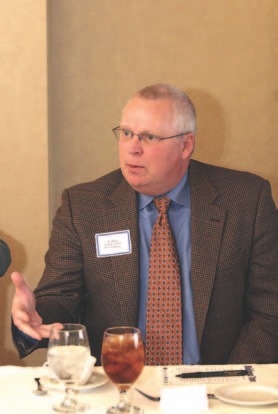
Others asked if this is so important, why isn’t the school district already doing it?
Belcher said by law, the school district is only charged with educating children from kindergarten to grade 12. But Belcher said he’s asked the board to allocate $2 million in funds from federal sources to early childhood programs and cut 12 high school positions for the next academic year. “That doesn’t make me a popular guy, but we’re cutting those positions so we can maintain preschool funding. Last year, we had a waiting list of 150. This year, I thought we solved that. But more children are coming as the economy continues to falter, and our poverty rates are rising.”
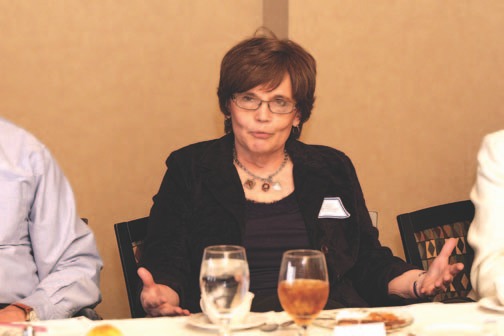
Proponents of the move to establish a county-wide system to provide quality universal preschool repeatedly cited the work of Kathy Thornburg, who is considered a national authority on early childhood education and families. In March 2010, Thornburg was hired by the Missouri Department of Education to head up the newly established Division of Early Learning. She is also the director of the University of Missouri’s Center for Family Policy and Research.
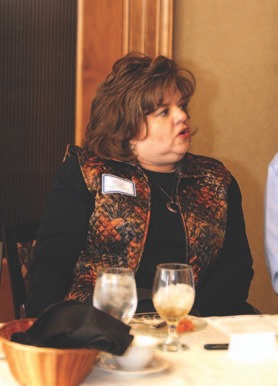
“The business community has to accept this is true,” he said. “It’s doable. It’s economically feasible. It’s just finding and allocating the resources.”
Belcher said at the end of the forum that he decided to take the current approach after unsuccessful efforts to persuade state legislators to support increases in the state alcohol tax or the cigarette tax to help fund social and educational programs.
“No one would even look me in the eye about the alcohol tax, saying the voters don’t want it,” Belcher said. “People are refusing to have this even debated on the floor. And that’s why I’m saying, well, the heck with them. Give me something that will be a local politic. … Give me a tool that allows me to go out and have conversations in the community and build coalitions of people that believe in this, and maybe we can convince Mr. Robb and his colleagues that this is something they should listen to us about.”



